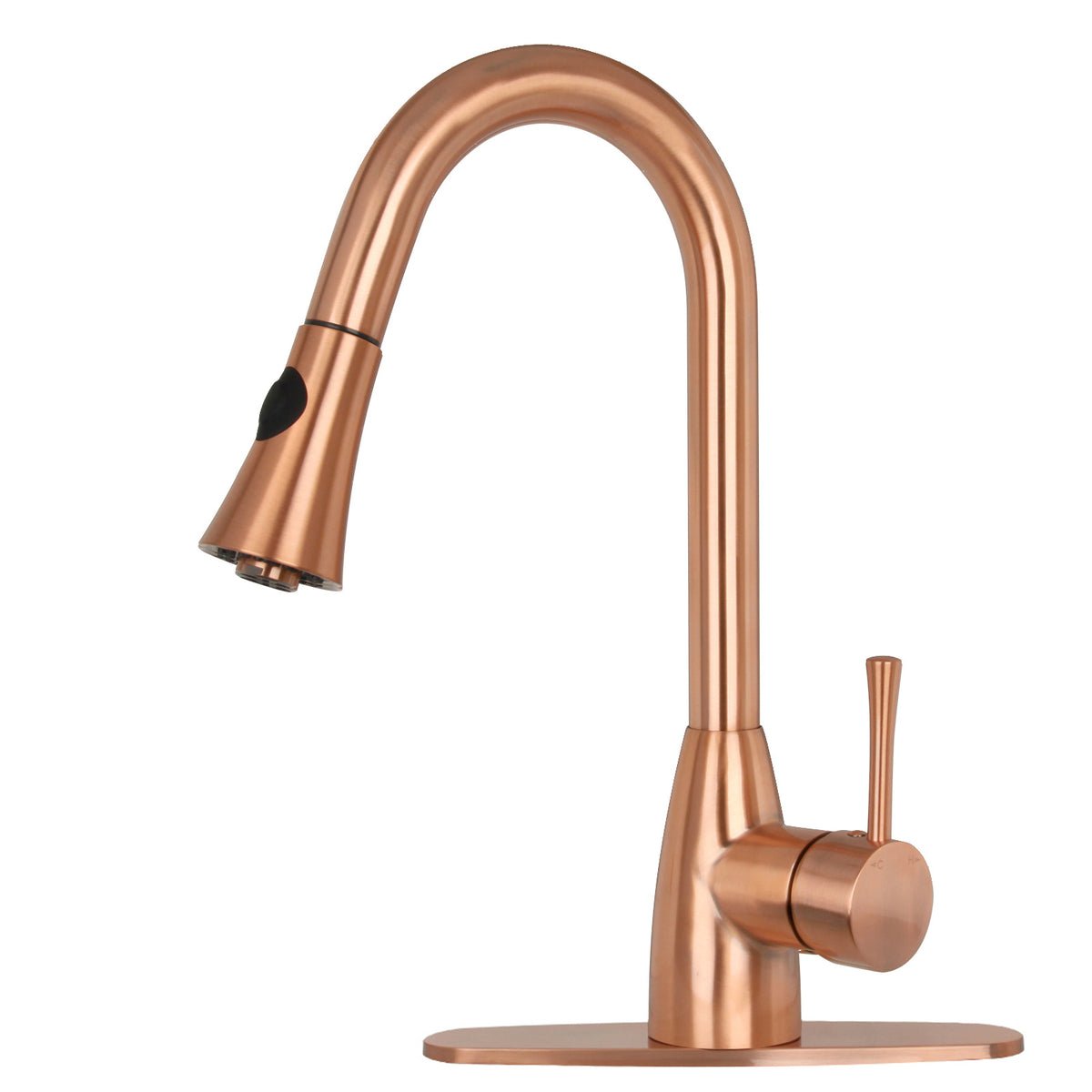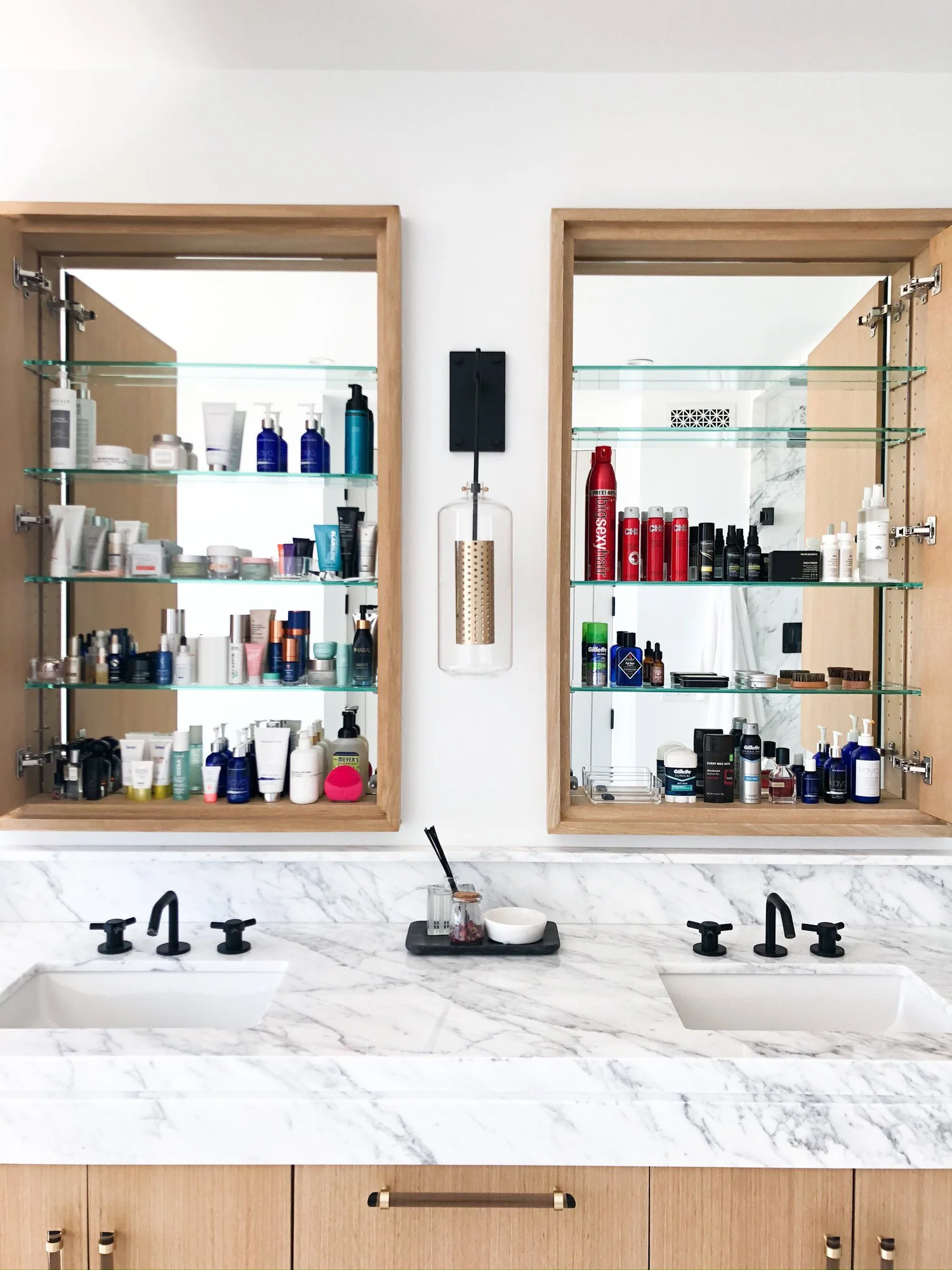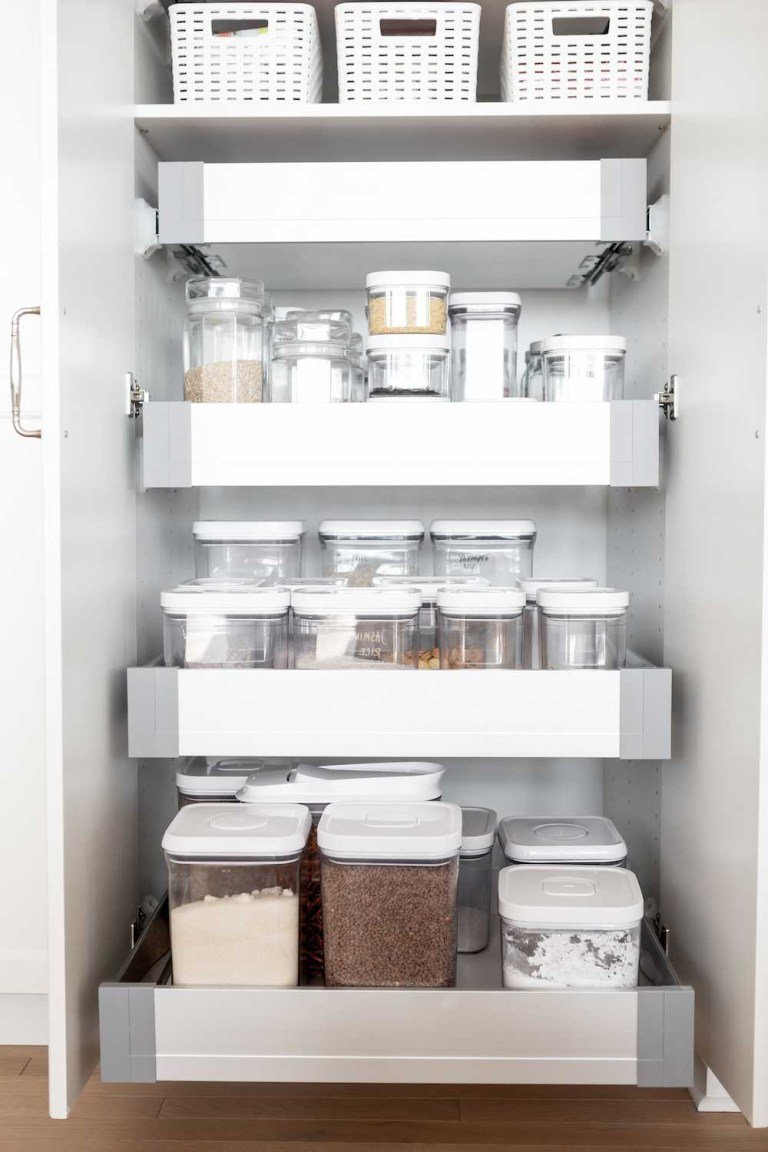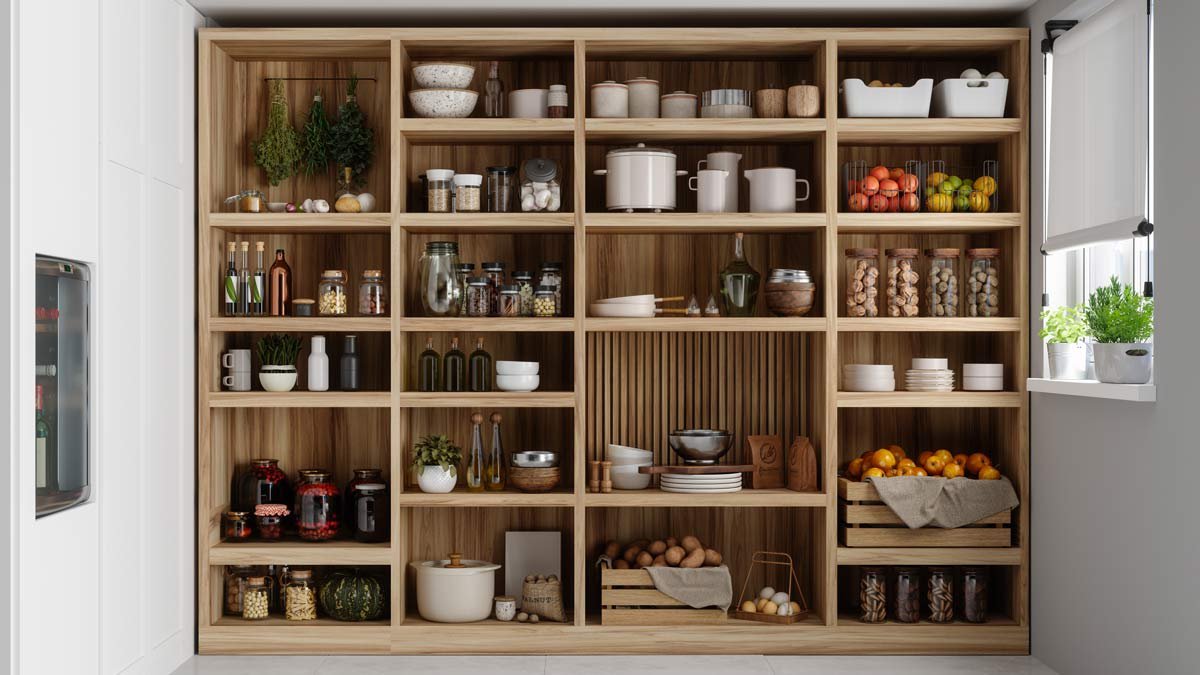Are you thinking about upgrading your kitchen faucet and wondering if copper is the right choice? Copper kitchen sink faucets don’t just look beautiful—they offer unique benefits that could change the way you experience your kitchen every day.
But are they truly worth it for your home? Keep reading to discover what makes copper faucets stand out, how they perform, and whether they fit your style and needs perfectly. By the end, you’ll know exactly if a copper faucet is the upgrade your kitchen deserves.
Benefits Of Copper Faucets
Copper kitchen sink faucets offer many benefits that make them a smart choice. These faucets combine style, health, and strength in one package. Choosing copper can improve your kitchen’s look and function.
Below are some key benefits of copper faucets that explain why they remain popular.
Antimicrobial Properties
Copper naturally kills many harmful bacteria and viruses. This helps keep your kitchen sink area cleaner and safer. The metal prevents germs from growing on the faucet surface. This can reduce the risk of illness in your home.
Durability And Longevity
Copper is very strong and lasts a long time. It resists corrosion and damage from water. This means copper faucets don’t wear out quickly. You save money over time because you do not need frequent replacements.
Aesthetic Appeal
Copper faucets add a warm and elegant look to your kitchen. They develop a unique patina that grows more beautiful with age. This natural change gives your kitchen a classic, inviting feel. Copper matches well with many kitchen styles.

Credit: www.amazon.com
Potential Drawbacks
Copper kitchen sink faucets add a unique look to your kitchen. They bring warmth and style. Yet, they come with some drawbacks. These can affect your choice. Understanding these issues helps you decide better.
Maintenance Requirements
Copper faucets need regular cleaning. Water spots and fingerprints show easily. Use mild soap and soft cloths only. Harsh cleaners can damage the finish. Polishing may be needed to keep shine. Without care, faucets may look dull or stained.
Cost Considerations
Copper faucets cost more than stainless steel or chrome. The metal itself is expensive. Crafting copper faucets involves detailed work. This raises the price. Budget might limit your options. Consider if the look is worth the extra cost.
Susceptibility To Patina
Copper changes color over time. This natural process is called patina. Some like the greenish or brownish shade it creates. Others may see it as damage. Patina forms faster in moist areas. You can slow it down, but not stop it. Decide if you want a changing look.
Comparing Copper To Other Materials
Choosing the right material for your kitchen sink faucet affects style, durability, and maintenance. Copper stands out with its unique look and natural properties. Comparing copper with other popular materials helps you decide the best fit for your kitchen. Below, we explore stainless steel, brass, and chrome against copper.
Stainless Steel Vs Copper
Stainless steel offers a sleek, modern look. It resists rust and stains well. Copper has a warm, classic appearance that changes over time. It develops a natural patina, adding character. Stainless steel needs less cleaning. Copper requires gentle care to keep its shine. Both materials last long but have different styles and maintenance needs.
Brass Vs Copper
Brass has a yellow-gold color that brightens any kitchen. It resists corrosion but can tarnish like copper. Copper’s color is richer and can vary from red to brown. Both metals kill bacteria naturally, making them hygienic choices. Brass faucets usually cost less than copper. Copper offers a more unique and earthy look.
Chrome Vs Copper
Chrome faucets shine with a smooth, mirror-like finish. They fit well in modern kitchens. Chrome is easy to clean and resists fingerprints. Copper has a softer, warmer tone. Its surface changes with use, creating a vintage charm. Chrome is less prone to scratches. Copper requires regular polishing to maintain its glow.

Credit: akicon.com
Installation And Compatibility
Installing a copper kitchen sink faucet involves several factors. Compatibility with your kitchen setup is key for a smooth process. Knowing how the faucet fits with your style and plumbing helps avoid problems. Choosing between professional help and DIY affects the outcome and cost.
Fitting With Kitchen Styles
Copper faucets add warmth and charm to kitchens. They blend well with rustic, farmhouse, and traditional styles. Modern kitchens can also benefit from copper’s unique look. The faucet’s finish matches wood, stone, and metal surfaces nicely. Copper tones create a focal point without clashing with other elements.
Plumbing Compatibility
Copper faucets usually work with standard plumbing connections. Check your water supply lines and pipe types before buying. Some older homes may need adapters for copper faucets. Make sure the faucet size fits your sink holes. Proper sealing prevents leaks and water damage.
Professional Vs Diy Installation
Professional installation ensures the faucet fits perfectly and works well. Experts handle tricky plumbing and prevent costly mistakes. DIY installation saves money but needs careful attention. Follow instructions step-by-step for best results. Use proper tools to avoid damage and leaks.
Expert Tips For Care
Copper kitchen sink faucets add warmth and style to any kitchen. Caring for them properly keeps their beauty and function. Follow expert tips to clean, protect, and extend your faucet’s life. Small daily actions make a big difference.
Cleaning Techniques
Use a soft cloth and warm water for daily cleaning. Avoid harsh chemicals that can damage copper’s surface. Mild soap works well for tougher spots. Rinse thoroughly to remove soap residue. Dry with a soft towel to prevent water spots.
Preventing Tarnish
Tarnish forms when copper meets air and moisture. Wipe your faucet dry after each use. Apply a thin layer of wax or oil to protect the surface. Avoid leaving acidic foods or liquids on the faucet. Regular care keeps the shine longer.
Extending Faucet Lifespan
Check for leaks and drips regularly. Fix small issues quickly to avoid bigger damage. Use water softeners if your water is hard. Hard water can wear down the finish faster. Proper care helps your faucet last for years.
Customer Experiences
Customer experiences reveal much about copper kitchen sink faucets. These insights help decide if they suit your needs. Many people share honest views based on daily use. Their feedback covers design, function, and durability.
Common Praise
Users often admire the unique look of copper faucets. The warm color adds charm to kitchens. Many say copper feels sturdy and well-made. They like how faucets develop a natural patina over time. This change gives each faucet a personal touch. Easy cleaning is another plus mentioned by customers. They appreciate faucets that resist fingerprints and water spots.
Frequent Complaints
Some users notice copper faucets require more care. The metal can tarnish quickly without regular cleaning. A few mention discoloration that was hard to remove. Others find the price higher than standard faucets. Installation may also take longer due to weight. Some customers report occasional leaks after months of use. These issues affect overall satisfaction for some buyers.
Long-term Satisfaction
Many owners still love copper faucets after years. The durability and style often outweigh small problems. Users say proper care keeps faucets looking good longer. They feel the faucets add value to their homes. For those who enjoy a classic look, copper remains a top choice. Long-term, most buyers feel the faucets meet expectations.

Credit: akicon.com
Frequently Asked Questions
Are Copper Kitchen Sink Faucets Durable?
Copper faucets are highly durable and resist corrosion well. They develop a natural patina over time, enhancing their longevity. Proper maintenance keeps them looking great for years. This makes copper a reliable material for kitchen faucets.
Do Copper Faucets Have Antimicrobial Properties?
Yes, copper has natural antimicrobial properties. It inhibits the growth of harmful bacteria and germs on faucet surfaces. This makes copper faucets a hygienic choice for kitchens, promoting cleaner and safer water contact areas.
How Does Copper Faucet Maintenance Compare?
Copper faucets require regular cleaning to prevent tarnish. Use mild soap and soft cloths to maintain shine. Avoid harsh chemicals or abrasive materials. With simple care, copper faucets stay beautiful and functional longer than many other metals.
Are Copper Kitchen Faucets Expensive?
Copper faucets tend to be more expensive than standard options. The cost reflects copper’s durability, antimicrobial benefits, and aesthetic appeal. Investing in copper can add value and style to your kitchen over time.
Conclusion
Copper kitchen sink faucets offer style and durability. They resist corrosion and add warmth to kitchens. Cleaning is easy, needing only mild soap and water. Their natural antibacterial properties help keep germs away. Costs can be higher, but many find the look worth it.
Choose copper if you want a unique, long-lasting faucet. It suits many kitchen designs and tastes. Consider your budget and care routine before deciding. Copper faucets can be a smart, attractive kitchen choice.



